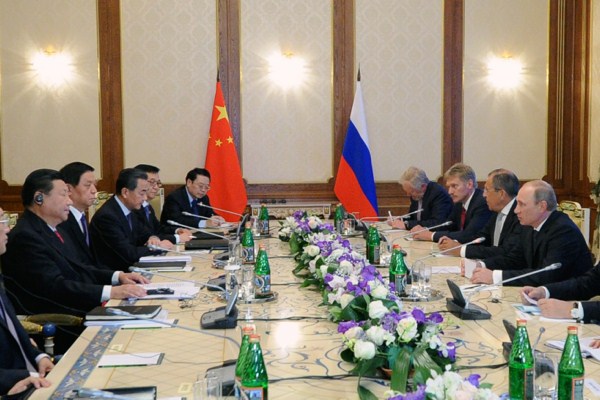Russia and China are good friends these days. Chinese Premier Li Keqiang visited Moscow last week and, by signing a bundle of economic agreements, demonstrated Beijing’s disregard for Western sanctions on Russia over Ukraine. Early in the Ukrainian conflict, American and European officials hoped that Beijing would take steps to penalize Russia over its annexation of Crimea. But it has confined itself to token complaints, while reinforcing its trade relations with its northern neighbor.
This is not the first time China has disappointed Western officials by sticking close to Moscow in recent years. Throughout the Syrian civil war, American and European diplomats at the United Nations have tried to prize their Chinese and Russian counterparts apart, arguing that Beijing has little real reason to support the regime in Damascus. On a few occasions, the Chinese have apparently used their influence to moderate Russian positions on second-order questions such as humanitarian aid.
Yet whenever the crisis has peaked, China has ultimately lined up with Russia to block Western proposals to put pressure on the Syrian government. The two powers have vetoed four Western-backed Security Council resolutions over the crisis since 2011. The Sino-Russian bond seems likely to be a persistent feature of U.N. negotiations and international diplomacy more generally for some time. On a visit to Beijing for two conferences on international affairs last week, I was unable to find any experts who believed that the Russian connection was merely a passing fad.

